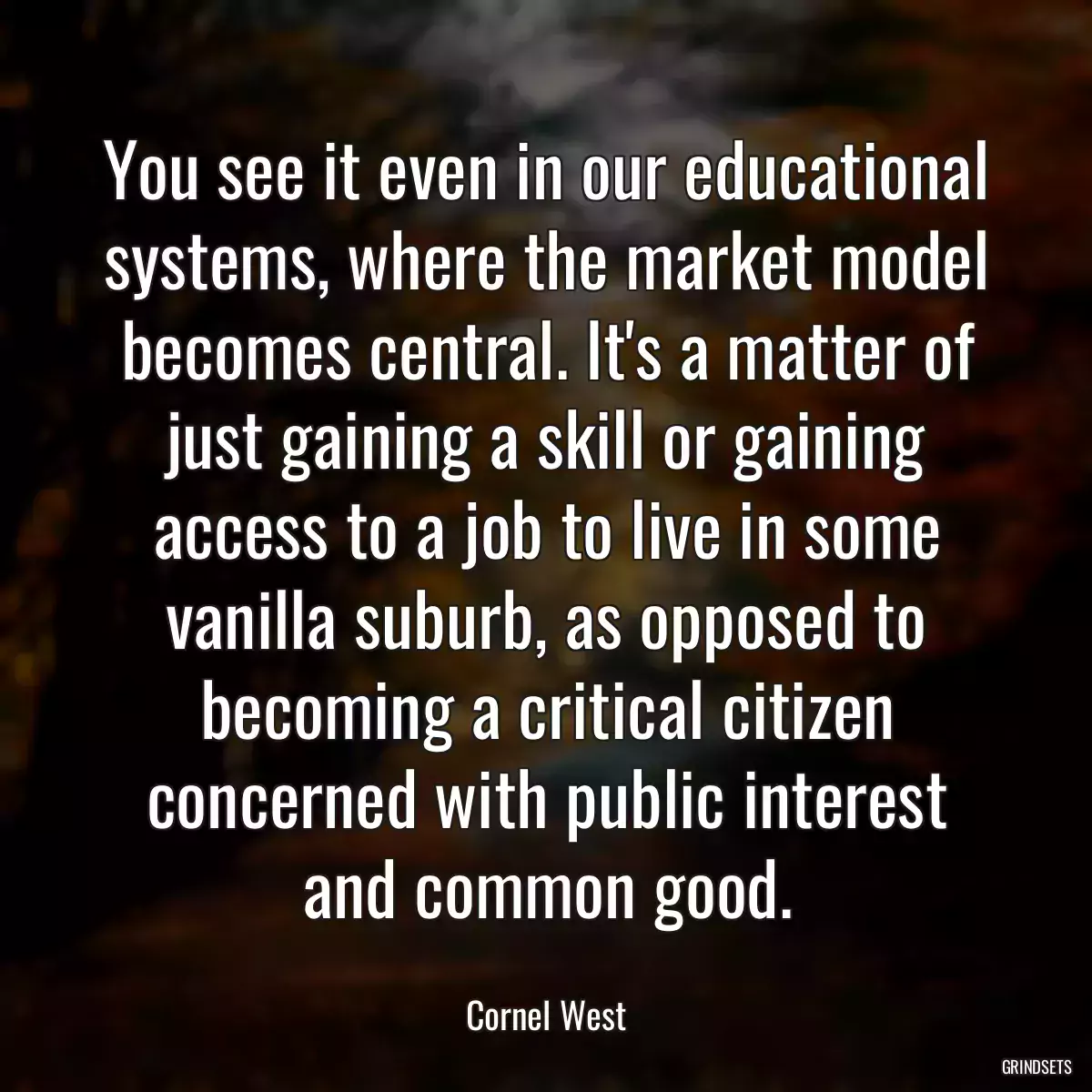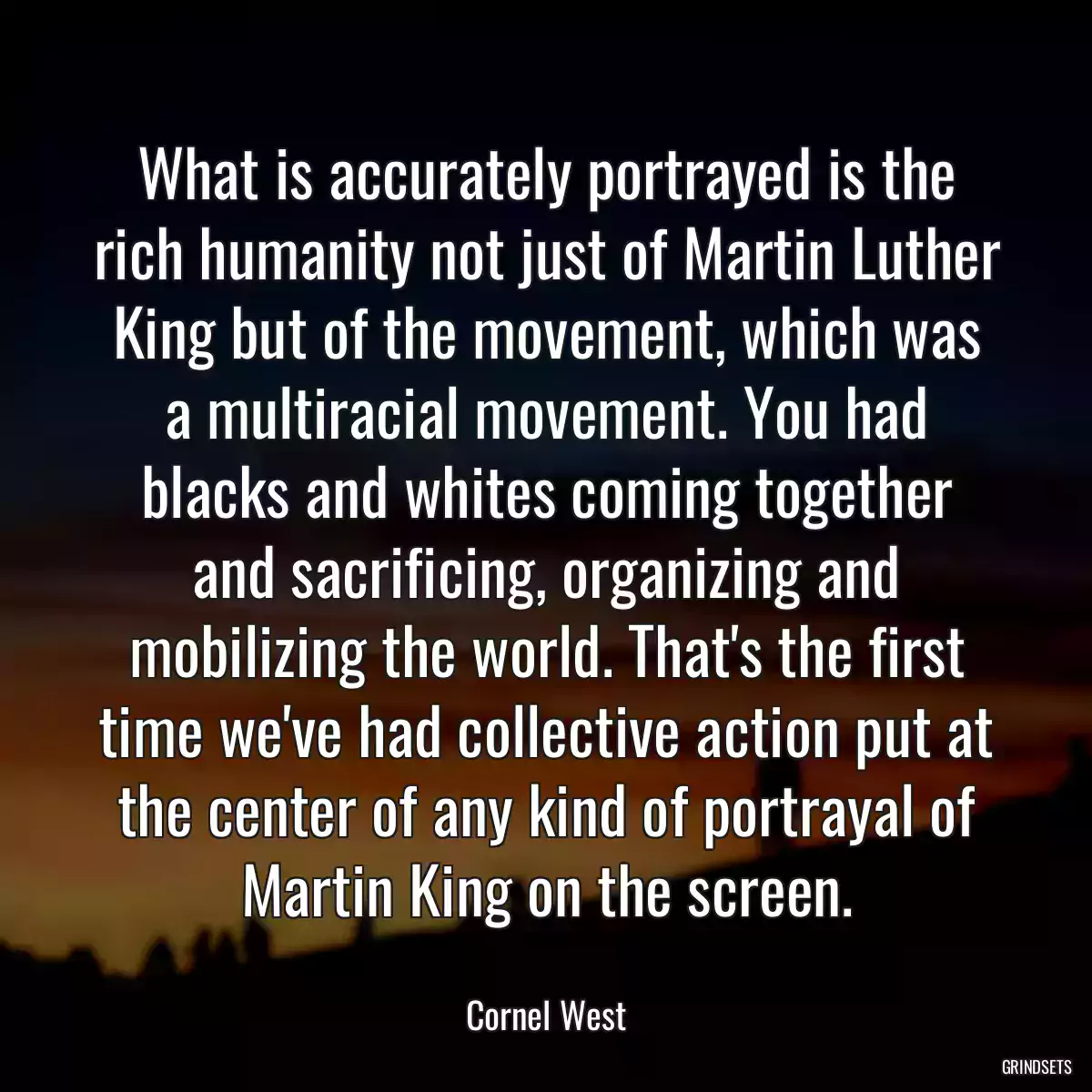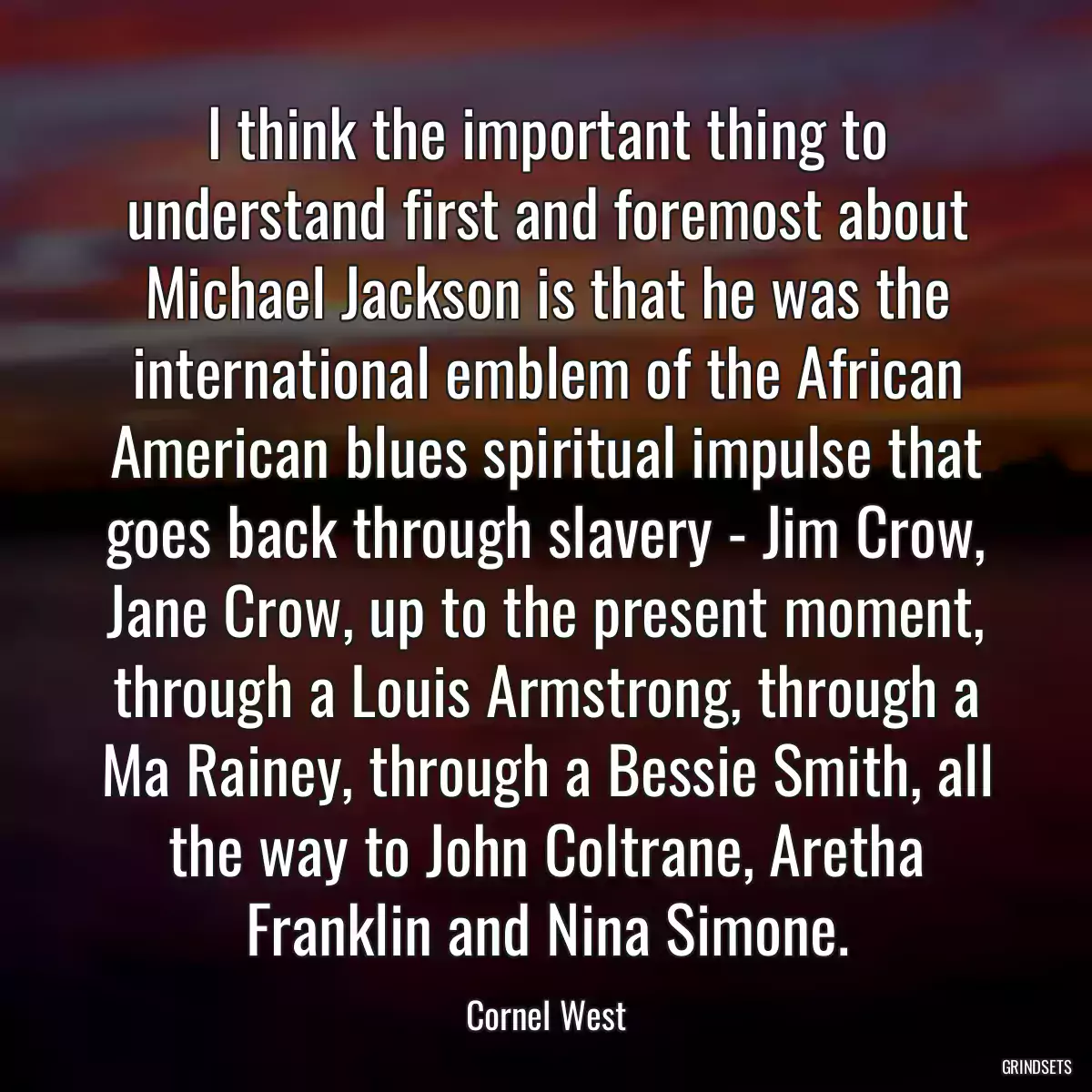
Quotes Cornel West - page 2
Find dozens of Cornel West with images to copy and share.

There's a difference between just gaining access to a commodity as opposed to a spirit that allows us to live a life of love and justice, that when crisis and catastrophe hits you, that the biggest mansion in the world is not going to help you. If you don't have anybody who loves you, if you don't have any God who cares for you, that you're not going to have what it takes to move to the next stage in your life.
It's no accident that most of the great black spokespersons and leaders understood the centrality of self-affirmation, self-respect and self-love.
I believe that all of us have gangster proclivities and greedy orientations that need accountability. That's why democracies are necessary. We have to have institutions to try to curtail the use of arbitrary power so that our greedy orientations and gangster-like proclivities don't get out of hand.
You may also like
American citizens have been killed abroad by drones with no due process, no accountability, no judicial review.
I think in the end, you know, we're just addicted to oil. We've got to overcome that addiction, and we need some serious accountability of big oil, because big oil, like so much of big businesses, has just colonized our government, colonized the regulatory agencies so we can't impose any kind of accountability on them.
I think Martin Luther King would always keep track of collective insurgencies among poor and working people. He was concerned about the treatment of Jews in the Soviet Union, for example. He would have closely followed the Arab Spring. And certainly he would be very critical of the massive surveillance state that has emerged in America in the last five to 10 years. He would have approved of the movements trying to gain some accountability in U.S. foreign policy, such as drones being (used) on innocent people. I think he would march against drones.
I was deeply influenced by the sartorial practices of both preachers and jazz musicians and actually Masha in Act One of Anton Chekhov, my favorite writer's master piece,Three Sisters,when she arrives reflecting on whether they're ever going to get to Moscow, memories of the death of their father, and she's in black, and she says I'm in mourning for the world, saying in part that I have a sad soul and a cheerful disposition.
Rap is just a movement within the larger culture of hip-hop.

What is accurately portrayed is the rich humanity not just of Martin Luther King but of the movement, which was a multiracial movement. You had blacks and whites coming together and sacrificing, organizing and mobilizing the world. That's the first time we've had collective action put at the center of any kind of portrayal of Martin King on the screen.
I want to be a jazzman until the day I die. To help keep that motion, momentum and movement going, for myself, for my students, for the people who hear me. Oh sure, some days you look around at this country and look at the evidence and think, Oh Lord, don't look good. But you keep moving. You gotta keep moving.
It would just be nice if we had leaders in Washington who could unequivocally take a stand on behalf of democratic movements in other parts of the world. And even this is true for even Brother Barack Obama.
Part of the problem is we had so far to go, given the deep homophobia in our society. But, the movement is very real. The movement is very real.
We are intent on building a movement. The next step is grassroots town meetings. We must keep alive the dialogue around the covenants.
This is what it is for Asians to be part of - support affirmative action, even though it may be against their interest, but they feel it's a matter of justice.
The problem is not just affirmative action, though. The problem is poor people, working people and their children, and affirmative action for the most part doesn't even apply to them.
Frank Rich, Paul Krugman, Maureen Dowd, a whole host of brilliant, courageous critics say all kinds of things, and he [Barack Obama] treats them with respect. They get invited to the White House. I say the same thing, he talks to me like I'm a Cub Scout.
For me, music is in no way ornamental or decorative, it's constitutive of who I am. And that's why, when I say I'm a blues man, that's a very serious vocation - to muster the courage to find your own unique voice, to forge your distinctive style in the world, to leave your imprint in the sands of time in such a way that your singularity, your individuality, remains something that people have to come to terms with.
You may also like

I think the important thing to understand first and foremost about Michael Jackson is that he was the international emblem of the African American blues spiritual impulse that goes back through slavery - Jim Crow, Jane Crow, up to the present moment, through a Louis Armstrong, through a Ma Rainey, through a Bessie Smith, all the way to John Coltrane, Aretha Franklin and Nina Simone.
The black agenda, from Frederick Douglas to Ida B. Wells to Martin King, has always been the most broad, deep, inclusive, embracing agenda of the nation.